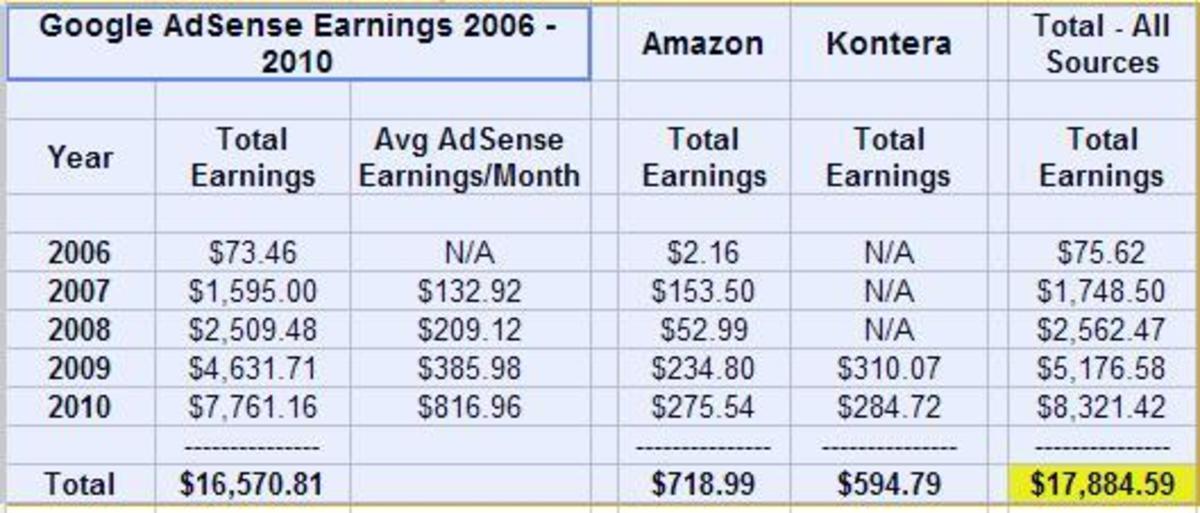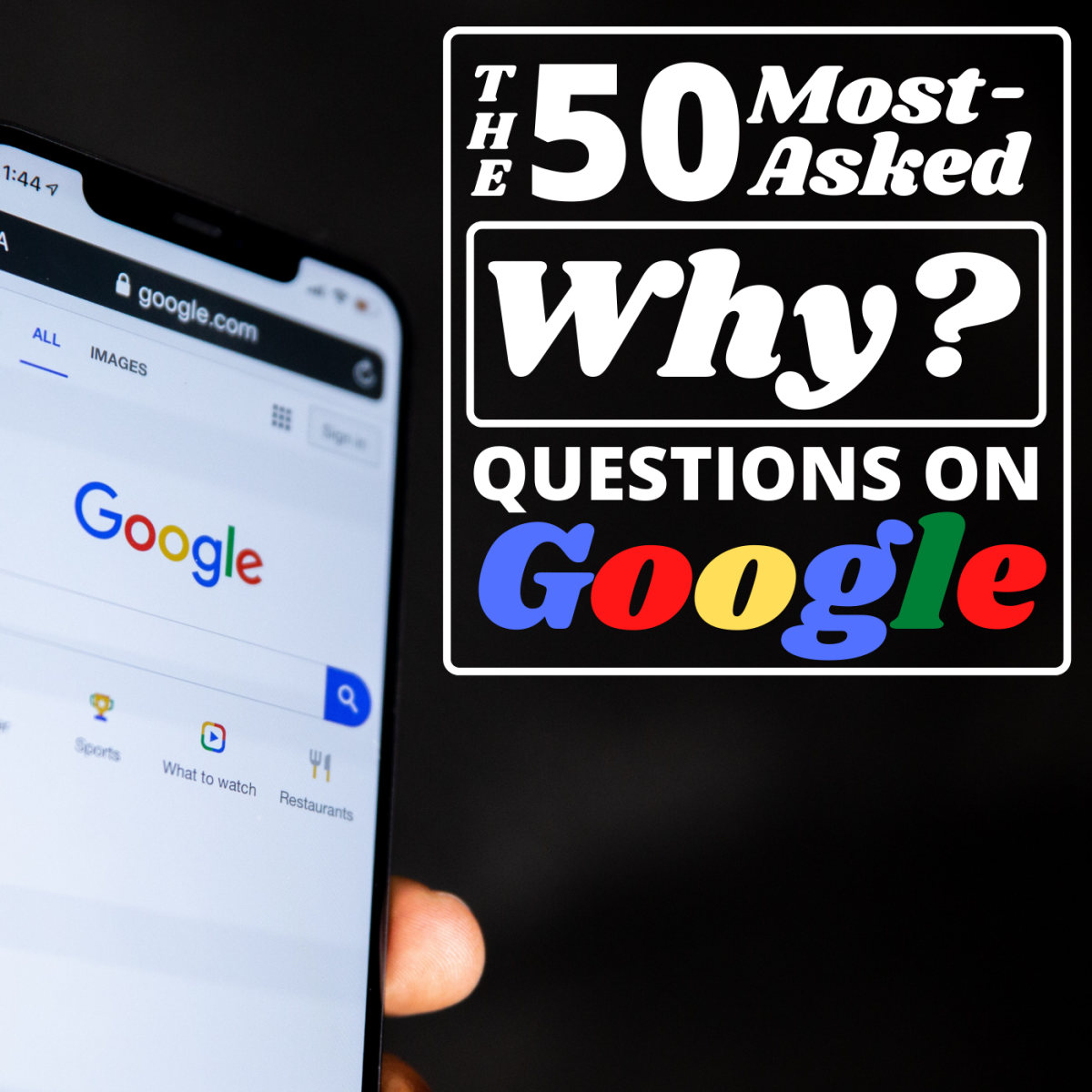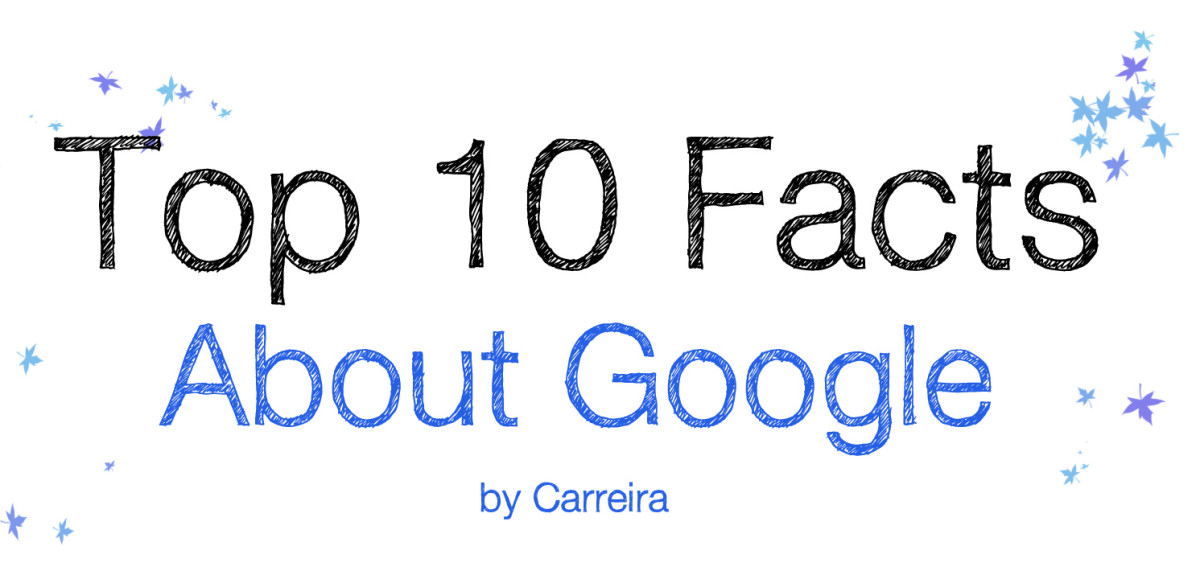Tips To Increase Your Adsense Earnings

Tips To Help You Get The Most From Adsense
I would imagine that most Hubbers know what Adsense is, so rather than bore you with a long and unnecessary description of Adsense I will keep it short. Google Adsense is an advertising network that can potentially monetize your website by serving up contextual ads directly to your WebPages. All that is required to get up and running is to include a unique Google Adsense publisher code into the HTML of your pages. Potential earnings can range from a few dollars to several hundred dollars every month.
Google have some great Adsense tutorials so if you are new to Adsense I suggest you read those first and familiarise yourself with the workings and terminology of Adsense. So, if you don’t know how to set up and position ad units or work with ad formats, start by working through Google’s Adsense Resources.
https://www.google.com/adsense/adsense-resources
Once you have added your Adsense code, Google will serve relevant ads to your pages. Even if you have read the information over at Google’s Adsense Resources there is no guarantee you will earn anything that could be considered an income.
So this is where the hard work begins, we are going to be looking at selecting topics to write about, ensuring that your pages are sufficiently self descriptive to ensure that relevant ads are displayed, measuring competition for the keywords you are targeting and getting search engine positions in order to drive traffic to your Adsense pages.
Topical Events and Hot Topics
Websites like HubPages are great places to write about topical events. Topical Events such as the recent US election are much searched for and documents that make reference to topical events receive a boost in their rankings. I suspect that some Hubbers who published articles about the election noticed an increase to their Adsense income.
Topical events may also become hot topics; the US election was both Topical and a hot topic. For the sake of clarity topical means current and newsworthy, a hot topic is current, newsworthy and heavily searched for online. Search engines are very quick at spotting hot topics by analysing search trends. A good example of this happened when concern over the Avian Flu epidemic was at its height. Pages that made reference to Avian Flu were deemed topical, even pages that had been around for years before the epidemic became a hot topic saw an increase in rankings.
Writing articles about hot topics and posting them on trusted sites like Hubpages can get your pages spidered quickly and achieve better rankings than your own website, if you have one, thus increasing your true earning potential.
Here are a few Ideas that are just screaming out for hubs to be written:
- I am thinking of buying a new car, should I buy from the big three?
- Should the heads of the big three keep their jobs?
- What is the greater evil, bailing out the big three to preserve jobs and the status quo or listening to free market forces and let them wither?
Gaining the Indirect Edge
You may have noticed a flaw in my original plan, that is, if you want to promote your own site it would involve waiting around for hot topics that have a direct impact on your business or the buying decisions of your target customers. Not so, you could for example write a piece talking about how your product or service can help your customers survive the current economic downturn.
Harnessing the power of blogs
If you have a blog associated to your site and registered you feed with Feedburner (now owned by Google) you might have noticed that new posts can make it to the first page of Google’s results within minutes of going live. If you also use the indirect edge method outlined above you can really drive traffic to your Adsense pages and gain customers at the same time.
Calculating the competition
Let’s look at two keyphrases, “Real Estate” and “Real Estate Denver”. Sub prime lending is still a hot topic and it would not be difficult to include references to sub prime lending from within articles about either keyphrase. However, competition for the keywords you target has a direct impact on your abilty to earn.
By using Google’s advanced operators it is possible to calculate how competitive these terms actually are. If you search for “Real Estate” on Google you will see that Google returns 487,000,000 results that it deems relevant to your search. Similarly, “Real Estate Denver“returns 632,000 rsults. This number can be found above the results on the right hand side of the screen.
N.B. The figure that you see for this result may be different, this is because this number is dynamic and I am writing this document in Spain, so we are more than likely viewing results from entirely different data centres.
Although Google reports 487,000,000 pages for Real Estate and 632,000 pages for Real Estate Denver this does not relate to 487,000,000 competing for those terms, only the number of pages that contain those words. Now try these searches:
intitle:”Real Estate” inanchor:”Real Estate”
The number of pages returned from this search is 72,000,000.
intitle:”Real Estate Denver ” inanchor:”Real Estate Denver”
The number of pages returned from this search is 158.
What these 2 searches tell us is that there are 72,000,000 pages that have Real Estate in their title and within the links that point to the page, a sure sign that a decent level of optimisation is in place. This is a seriously competitive term and even with a very powerful blog it’s going to be difficult to rank for it.
Thankfully, we have a fallback term; Real Estate Denver which has only 158 pages that contain the term in both the page title and the links that point to the page. By including a fallback term you increase the chances of gaining rankings and therefore Adsense clicking traffic.
Spider Spider
Where your page eventually ranks within the search engines comes down to the power, trust, reputation and link profile of site that hosts your articles. Sites like HubPages already have this by the bucket load, you may have noticed how quickly your pages rank and may get the occasional surprise at how well they rank. Google’s ranking algorithm takes many things into account in deciding relevancy. This opens up another jar of worms that is SEO, I have written a few hubs about SEO, and will be writing others, so rather than side track this hub I suggest you read those if you want information about SEO.
In essence search engines crawl your pages and download them to their servers. Spiders or crawlers are not responsible for ranking pages, rather pages are analysed by the search engines once they are downloaded. However, Adsense creates another layer of complexity by using a second spider to evaluate the contextual relevancy of your pages in order to deliver suitable ads.
The Adsense algo places a heavy reliance on ‘on page’ factors to serve up relevant ads and each page is looked at in isolation. Internal navigation and back links play a reduced role in calculating which ads are served up. This is contrary to their main algo which drives rankings primarily based on links. This allows you to isolate and effectively test the efficacy of your on page optimisation against competing WebPages.
Semantics
Some of you may have heard about LSI or Latent Semantic Indexing. The truth is, unless you are a dyed in the wool SEO there is no need to understand the technology behind it. You do need to know how to use semantics and how to find terms that are semantically related to those that you are targeting.
If someone was to say to you ‘Java’, would they be talking about coffee, a scripting language or the island? If Java was used along with coffee, script or Jakarta then we would have a better idea what they were talking about.
Search engines work in a similar way in that certain words add contextual meaning to other words and in turn an entire document or article. One of our tasks is to make each page as self descriptive as possible (a task common to SEO and Adsense publishing) thus ensuring that a page is categorised properly, ranks better and displays the most relevant ads.
Working With Googles Semantic Operator
Search Google for wood, you will see that 277,000,000 pages are returned. Now try this search:
~wood -wood
If you are unfamiliar with Google’s semantic search what you have done is:
- Ask Google to return pages that are relevant for wood
- Remove any page from the result that make use of the word wood
Now look at the results and pay particular notice to the words in bold. What you are looking at are the words that Google deems to be semantically related to wood. Now amend your search by misusing out the words in bold as they occur within the search results. So my next search would be:
~wood -wood -cedar
And then:
~wood -wood -cedar -furniture
Eventually you should end up with a search query that looks like this:
~wood -wood -cedar -furniture -wooden -woods -woodworking -lumber -hardwood
Now repeat the process with the first new word that was discovered i.e. cedar: ~cedar -cedar -wood
Continue the process for each word discovered from the original search>
~furniture -furniture -chair -chairs -desks -sofas
~wooden -wooden -wood -toy –carved ~woods -woods -wood -golf -clubs -trees -wood's
~woodworking -woodworking -woodcraft -furniture -do -it -yourself -woodwork -wood –working ~lumber -lumber -wood -timber -logging
~hardwood -hardwood -tile -wood -flooring -timber -laminate
What you now have is a list of words semantically related to Wood. These are the words that Google wants to see on your pages to show that they are authoritative documents. If you want to research how LSI works in depth I suggest you start by researching Term Document Matrix, just type it into Google... Good luck!
At the end of the process you should have a word list similar to the one below.
Wood, cedar, furniture, wooden, woods, woodworking , lumber, hardwood, chair, chairs, desks, sofas, toy, carved, golf clubs, trees, wood's, woodcraft , do it yourself, woodwork, wood working, timber, logging, tile, wood and laminate.
So in the unlikely event I have to write a document that I want to rank for wood I have a dip-in word list I can use to up the relevance of the piece and ensure the most relevant ads are served to my pages. However, its not that often I target single word terms unless they are brand names. To extend the semantic search to include multiple word terms, for example Real Estate, use the following syntax:
~"Real" + ~"Estate" -Real -Estate
And repeat the process as outlined above.
I hope that you find this information useful and that it results in a few more dollars in your pocket.
SEO Scotland: Promoting business online with professionalism and integrity.








